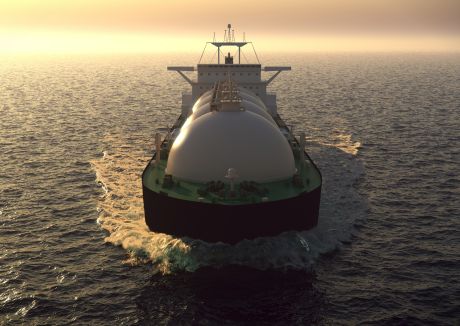With gas and LNG now in the grip of the fallout from a price collapse caused by an unprecedented reduction in global demand, new and critical questions have pushed their way to the fore: Where is the bottom? What will the ‘next day’ look like? What shape will recovery take?
Intelligent, accessible information is currency in times of upheaval. An authoritative voice cuts through the noise and shores up confidence, but concrete answers are in short supply. Nevertheless, the debate generated by asking these questions – and welcoming a diverse range of responses - will help individuals and organisations to map their way through the uncharted, misty territory that lies ahead.
The news-and-views published daily in Gas Matters Today has seen an incredible 40% increase in total pageviews in March 2020 compared to a year earlier, and a 20% year-on-year increase in April. Readers are clearly seeking out and valuing reliable, discerning up-to-the-minute analysis that puts the big, unprecedented events of 2020 in an understandable context.
It has been an unusual editorial challenge to change tempo to cover the fast-changing and evolving story that gas and LNG has become in the past two months. Our mission now is to not only bring our readers’ attention to the latest most significant events as they evolve, but also to slice and dice the different views we encounter in order to bring meaning to often conflicting actions and reactions: the diverse financial responses of Shell, ExxonMobil or Chevron in the past few weeks being a case in point.
We are always curious to understand the changes in the reading patterns of our subscribers. Recent weeks indicate the significant increased pace of change, together with uncertainty, are exacerbating the challenge to make sense of their meaning and impact. Standing out is the strong interest in the deeper Analysis pieces that have challenged conventional wisdom and, of course, Pricewatch, the daily price commentary series that has chronicled negative pricing of US crude oil and other historic market events. Readership trends are showing appreciation that we are not afraid to spot structural weaknesses in the gas and LNG value chain, nor to question whether exogenous factors such as Covid-19 should be entirely blamed for the industry’s reported difficulties in this time.
For Gas Strategies’ weekly long-form publications, Gas Matters and LNG Business Review, the Covid-19 crisis has also meant a challenge of delivering to a faster turnaround for our in-depth content to ensure its greatest relevance. Readers, on the other hand, are choosing to maintain a healthy balance of perspective between deeper reflection on current industry change and where future opportunity for business may lie.
For Gas Matters, the highest readership features – a deep-dive into the Covid-19 crisis and a market intelligence-driven feature that takes the temperature of the US shale sector – respond to the rapidly moving news agenda. Published in the end of March, LNG Business Review’s top feature in the year-to-date looks at how, or whether, long-term LNG contracts can cope under the triple pressure of Covid-19, the oil price crash and ongoing LNG glut.
Meanwhile, evergreen stories continue to appeal. Readers still have the headspace for the thorny issue of decarbonisation. The popularity of a recent feature on China’s nascent efforts at carbon trading shows that even during uncertain times, underreported stories on non-coronavirus topics still have an important role to play in painting a picture of the future.
For LNG Business Review, large-scale supply and demand topics remain a core focus for readers with their eye to recovery. Two recent features that took a close look at China’s gas demand prospects and supply capacity challenges are respectively the publication’s second and third most-read in April. Following reader feedback, the ever-shifting nature of the business of LNG, contractual disputes and the impact Covid-19 will have on new liquefaction projects are among the pressing topics the title will explore in coming weeks.
Our changed working arrangements, including less time commuting and traveling, are also being taken as an opportunity by readers to take themselves up the learning curve on new opportunities – which will certainly be even more important to business and careers over the next two to three years. It is clear from our readership data, social media engagement and face-to-face discussions with market participants that, against the backdrop of oversupply, there is a strong appetite for informed content on new outlets for LNG. This includes promising regional markets in Asia, and also the use of LNG as fuel in shipping and trucking.
The Information Services online archives have provided a treasure trove of sources for avid readers. This very much includes those keen to learn more about small-scale LNG, which for a long time has been dismissed as ‘niche’ but has evolved to become a dynamic, upbeat sector. It is here that the spirit of LNG as a pioneering industry 25 years ago has been reborn, showcasing how small-scale innovations can benefit the wider LNG market as it primes itself in the decarbonisation arena.
An in-depth feature on LNG-fuelled trucking in Europe, a segment that is seeing strong growth, turned out to be a surprise hit with readers in the summer of 2019, and features on the small-scale side of the LNG business continue to perform well into 2020, as do interviews with high-profile people shaping the sector. Our audience is keen to read success stories for the fuel.
But according to one reader, the reason for the popularity of our coverage of this growing but underreported segment is simple – and succinctly describes what providing information should strive to do: ‘I knew very little about this topic. Now I know a lot.’
At Gas Strategies, we strongly believe that creativity and insight come from asking questions – never more so than in a period of crisis. Companies and individuals in our sector have for too long felt assured that the future will not be very different from the past. But now, in a confusing world of enormous uncertainty, what sets our Information Services apart is our recognition of the need to challenge and shake up this type of entrenched thinking. And this can only be done by asking questions which would have been unthinkable just a few weeks ago, to prepare our readers for alternative futures in a world without answers.
***
If you would like more information about how Gas Strategies can help your business with Consulting services across the value chain or provide industry insight with regular news, features and analysis through Information Services or help with people development through Training Services, please contact us directly.









